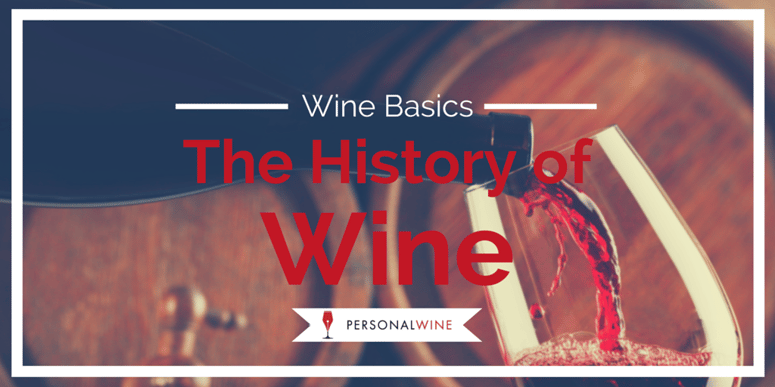
The world of wine is vast and exploring all of it would take a lifetime, but even learning the basics can be fascinating and serve as a great jumping-off point for further explortation. Our goal for this series is to introduce the casual wine drinker to some of the more nuanced aspects of wine without any drab jargon or pretension. We are firm believers that at the end of the day wine is best enjoyed and not studied, but we hope by introducing a few new concepts we are able to help grow your appreciation for this wonderful beverage.
This first post will provide a brief history of wine, with further posts covering the basics of wine styles, glassware, tasting and more. In no way is this series meant to be exhaustive, but by the end you should be able to navigate the wine menu at your favorite restaurant with poise.
The Origins of Wine
The ancient Greek historian Thucydides wrote, "the peoples of the Mediterranean began to emerge from barbarism when they learned to cultivate the olive and the vine." Wine played a major role in the social life of ancient Greece and Rome. Unfortunately for the common people, consumption of the liquor was mostly restricted to the upper classes of society.
The actual origin of wine, however, goes back much further in history, to ancient Iran. It was in the Zagros Mountains of western Iran that archaeologists found the oldest known remnants of winemaking in the form of residue inside a clay jar dating back to 5400-5000 B.C.
From Iran, the cultivation of grapes moved steadily westward, becoming a major industry in the Nile River delta of ancient Egypt before jumping across the Mediterranean to Greece, where a robust viticulture developed. As neighboring Rome grew into a civilization in its own right, it borrowed heavily from Greek culture and developed its own viticulture. From Rome, the practice of fermenting grapes spread all through Europe. And as they say, the rest is history.
Wine in Modernity
Though society has changed signficantly since antiquity, by and large the core function of wine in it hasn't: making meals and social gatherings more enjoyable and memorable (sometimes less). Now, as then, wine is important to the economies of countries where it's produced. Entire industries, such as wine tours (think Napa Valley and Tuscany), have sprung up to provide recreational outlets for wine lovers everywhere.
Wine making has spread from the areas around the Mediterranean to all over the world, notably in the United States, Austrailia, South Africa and South America. The new climates and cultures imparted their own styles and flavors in to the wine, giving rise to two distinct philsophies for making wine.
Old vs. New World
There terms don't describe a particular style of wine, but rather describes underlying characteristics that come from general differences in winemaking philosophies. These differences aren’t strict rules but instead have developed from the culture and spirit of each region.
The Old World philosophy is rooted in tradition, paying homage to the rich history of the region. The “style” tends to emphasis the natural characteristics of the environment (sold, climate, etc.) and prefers traditional production methods to new ones. This makes for generally lighter-bodied, less alcoholic wines that have been made the same way for hundreds of years.
The New World philosophy is more entrepreneurial, embodying the spirit of the explorers who set out for the new. The style emphasises the roles of science and the winemaker. This makes for more daring, fruit-forward wines that tend to be higher in alcohol content.
The Judgement of Paris
The Judgement of Paris was a French wine copetition that took place in 1976 to bring awareness to New World wine-making; specifically wines from California. Notable judges blind-sampled various American & French wines against each other giving each wine a rating. Suprisingly, the Californian wines trumped the French selections and were the favorites in both red/white categories.
The news of this competition shocked the wine community as France had always been recognized as the top wine producer in the world. The implications of this event undoubtably changed the demand for New World wines and helped elevate the status of California and New World wine-making (check out the 2008 film Bottle Shock which is loosely based on the Judgement of Paris and has become a cult film amongst sommeliers and wine professionals).
Conclusion
Wine has both deep and wide historical roots, every time you drink wine you are taking part in a shared human experience that has been around for thousands of years. Despite this heritage, the world of wine is still alive and changing with new regions producing exquisite wines.
We hope you enjoyed this brief history of wine, so stay tuned for the upcoming posts in the Wine Basics series!

